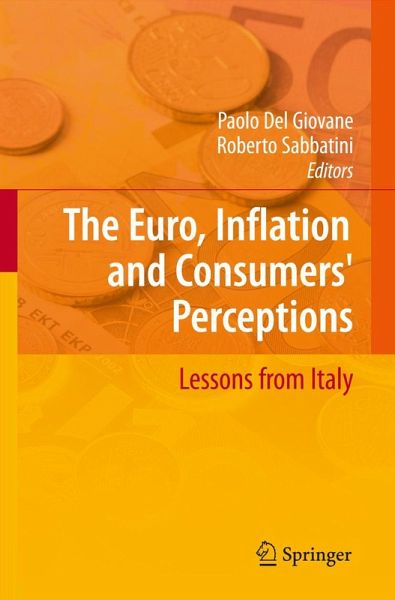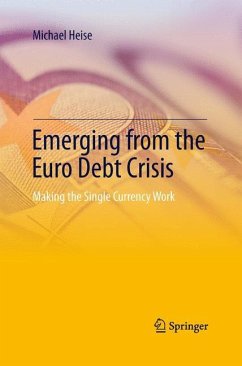
The Euro, Inflation and Consumers' Perceptions
Lessons from Italy
Herausgegeben: Giovane, Paolo; Sabbatini, Roberto

PAYBACK Punkte
39 °P sammeln!
On 1 January 2002, euro banknotes and coins were introduced in twelve EU Member States. Three more countries joined in the following years, and over 300 million people now use the euro in their daily transactions. The currency changeover was a technical success. From the very start, however, the vast majority of euro area citizens held the single currency responsible for a sharp rise in prices and a subsequent decline in their personal economic fortunes.This book puts forward convincing empirical evidence, primarily drawn from Italy's experience, to establish whether the introduction of the eu...
On 1 January 2002, euro banknotes and coins were introduced in twelve EU Member States. Three more countries joined in the following years, and over 300 million people now use the euro in their daily transactions. The currency changeover was a technical success. From the very start, however, the vast majority of euro area citizens held the single currency responsible for a sharp rise in prices and a subsequent decline in their personal economic fortunes.
This book puts forward convincing empirical evidence, primarily drawn from Italy's experience, to establish whether the introduction of the euro has had a major impact on prices, and if not, why so many people believe it has. Its significance lies not only in the documentation of a historic event, but also and more importantly, in the lessons it provides, which concern the public's understanding of inflation, the correct assessment of the effects of the single currency, and the need for appropriate measures when other countries adopt the euro.
This book puts forward convincing empirical evidence, primarily drawn from Italy's experience, to establish whether the introduction of the euro has had a major impact on prices, and if not, why so many people believe it has. Its significance lies not only in the documentation of a historic event, but also and more importantly, in the lessons it provides, which concern the public's understanding of inflation, the correct assessment of the effects of the single currency, and the need for appropriate measures when other countries adopt the euro.














